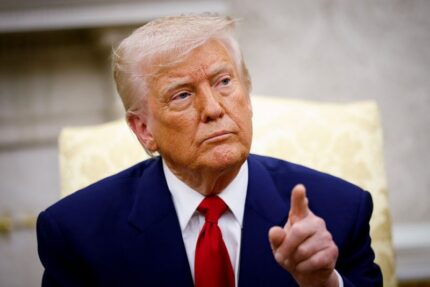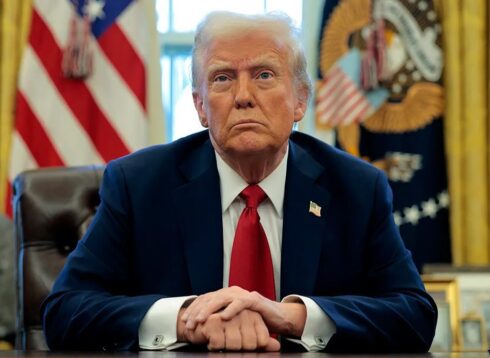In a surprise announcement late Saturday, President Trump revealed that he is withdrawing the nomination of billionaire entrepreneur and private astronaut Jared Isaacman to lead NASA, just days before the Senate was expected to vote on the confirmation. The decision was made public through a post on Truth Social, where President Trump stated, “After a thorough review of prior associations, I am hereby withdrawing the nomination of Jared Isaacman to head NASA.”
While no specific reason was given for the withdrawal, the White House is expected to announce a new nominee soon. “It’s essential that the next leader of NASA is in complete alignment with President Trump’s America First agenda,” said White House spokeswoman Elizabeth Huston in a statement to CBS News.
Isaacman’s Background and Nomination Timeline
Jared Isaacman, 42, is a well-known figure in the aerospace industry. A billionaire tech entrepreneur and skilled pilot who flies his own MiG-29 fighter jet, Isaacman gained national recognition through his privately funded spaceflights with SpaceX, including commanding the all-civilian Inspiration4 mission. He is considered a close associate of Elon Musk and has been a vocal proponent of advancing human space exploration.
President Trump tapped Isaacman to serve as NASA Administrator shortly after taking office earlier this year. Isaacman’s nomination moved through the Senate Commerce Committee in April, with a full Senate vote expected shortly after lawmakers returned from recess. The sudden withdrawal of his nomination has left many in Washington and the space industry surprised.
America First in Space: Trump’s Vision for NASA
The decision to withdraw Isaacman underscores the White House’s insistence that the head of NASA be “mission aligned.” Huston emphasized that the next administrator must be capable of executing President Trump’s ambitious vision of sending Americans to the Moon and Mars. “The next administrator will help lead humanity into space and execute President Trump’s bold mission of planting the American flag on the planet Mars,” she said.
This rhetoric is consistent with Trump’s broader space policy goals, which include reinvigorating American dominance in space exploration and avoiding international dependency. His administration has championed private-sector partnerships but insists on a strong national leadership role in space efforts.
Reactions from the Space Community

Isaacman has not commented publicly on the withdrawal. However, Elon Musk, CEO of SpaceX, responded on X to a post about the development, writing, “It is rare to find someone so competent and good-hearted.” Musk and Isaacman have collaborated closely on several high-profile space missions, and Isaacman’s leadership style had drawn praise from several corners of the private aerospace sector.
Industry insiders had expected Isaacman’s confirmation to go smoothly due to his experience and commitment to space advocacy. His withdrawal leaves uncertainty around NASA’s leadership at a time when the agency is preparing for its Artemis missions and deep-space exploration plans.
Isaacman’s Vision for NASA and Public Commitment
In a post made shortly after his nomination in December, Isaacman vowed to be a “vocal space advocate” who would help transform humanity into a “true spacefaring civilization.” He pledged that under his leadership, NASA would never again lose the ability to journey to the stars or settle for second place.
“With the support of President Trump, I can promise you this: We will never again lose our ability to journey to the stars and never settle for second place,” Isaacman wrote. “Americans will walk on the Moon and Mars, and in doing so, we will make life better here on Earth.”
What Comes Next for NASA’s Leadership
The White House has not indicated a timeline for announcing Isaacman’s replacement, but officials say the new nominee will be named directly by President Trump. The administration is likely to consider candidates with strong credentials in both aerospace leadership and political alignment with Trump’s America First agenda.
Until a new administrator is confirmed, NASA’s leadership remains in flux. The agency continues to pursue high-stakes missions, including plans for a sustained lunar presence and early-stage development for Mars-bound human travel. Observers expect the Senate to fast-track confirmation once a new nominee is presented.














